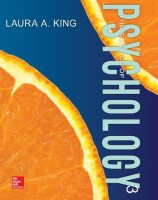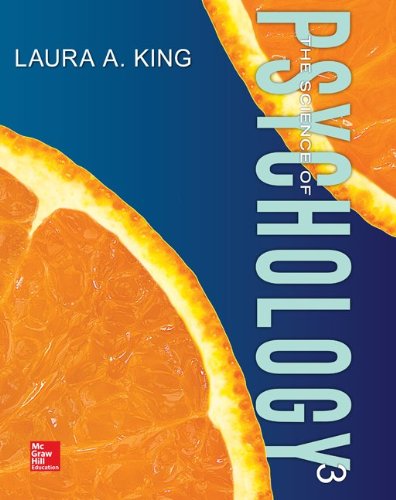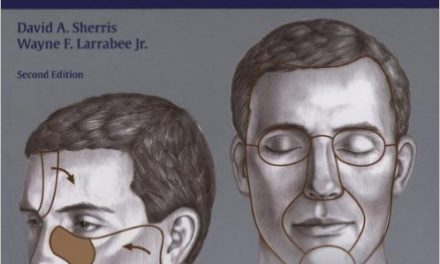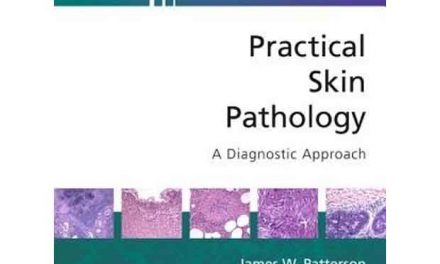 Author: Laura A. King, PhD
Author: Laura A. King, PhD
Publisher: McGraw-Hill – 584 pages
Book Review by: Sonu Chandiram
This book is based on three years of empirical data provided by students basically on what concepts in psychology caused them the most difficulty in understanding. The data were collected anonymously through McGraw-Hill’s Connect and LearnSmart online resources. The data were then used to develop a Heat Map which showed the “hot spots” where students were having difficulty in learning. The author Laura King used this information to modify the content to increase student comprehension and retention for this edition.
Laura King’s main objective for this edition is to present the science of psychology as an integrated field in which the whole is greater than the sum of the parts and all the parts are essential to the whole.
Two websites allow instructors to teach more effectively and enable students to benefit more from this book.
The first is: www.mcgrawhillconnect.com. Whether a class is face-to-face, hybrid, or entirely online, Connect provides easy-to-use course management tools that allow instructors to spend less time administering and more time teaching, while reports allow students to monitor their progress and optimize their study time. These are some of the useful features of this website:
- The At –Risk Student Report: allows instructors to identify students that are at risk of out of a course due to low engagement levels.
- The Category Analysis Report details student performance relative to specific learning objectives and goals.
- The Assignment Results and Statistics Report provides instructors with performance data for all class assignments.
- The Learn Smart Reports allow instructors and students to easily monitor progress and pinpoint areas of weakness, giving each student a personalized study plan to achieve success.
The second is: www.learnsmartadvantage.com. This is a new series of adaptive products fueled by LearnSmart – a widely used adaptive learning resource to strengthen memory recall, increase retention, and boost grades. These are some of the useful features of this website:
- McGraw-Hill LearnSmart – through the process of metacognition, the LearnSmart study tool distinguishes what students know from what they don’t. and helps them focus on concepts they are most likely to forget, adapting to each student’s needs.
- LearnSmart Achieve – leverages a continuously adaptive learning path, adjusting to each student individually as he or she progresses through the program, and creating just-in-time learning experiences by presenting interactive content that is tailored to each student’s needs.
- SmartBook – is the first and only adaptive reading experience available today. With SmartBook, reading is no longer passive and linear, but an engaging and dynamic experience where students are more likely to master and retain important concepts and be better prepared for class.
In this book of 17 chapters Laura King covers a wide range of topics, from the definition of psychology as the study of human behavior, to the components of and discussion of the scientific method; to the physical aspects of psychology such as the biological foundations of behavior, sensation and perception.
She then introduces us to and delves into states of consciousness, learning, memory, thinking, intelligence, and language. King then goes on and gets into human development. She sheds light on motivation and emotion, and the psychological aspects of gender, sex and sexuality.
She follows with chapters on personality and social psychology or behavior and communication among people. Organizational and industrial psychology are the next subjects she covers, followed by psychological disorders, therapies and how to become a healthy and happy person by studying health psychology.
Laura King is an effective writer because she is a compassionate teacher, caring about whether students learn or not and why, and having gathered data and produced this excellent, improved edition of her best-selling textbook.
Laura A. King, PhD did her undergraduate work at Kenyon College, where, an English major, she declared a second major, in psychology, during the second semester of her junior year. She completed her A.B. in English with high honors and distinction and in psychology with distinction in 1986. Laura then did graduate work at Michigan State University and the University of California, Davis, receiving her Ph.D. in personality psychology in 1991.
Laura began her career at Southern Methodist University in Dallas, moving to the University of Missouri, Columbia, in 2001, where she is now a professor. In addition to seminars in the development of character, social psychology, and personality psychology, she has taught undergraduate lecture courses in introductory psychology, introduction to personality psychology, and social psychology. At SMU, she received six different teaching awards, including the “M” award for “sustained excellence” in 1999. At the University of Missouri, she received the Chancellor’s Award for Outstanding Research and Creative Activity in 2004.
Her research, which has been funded by the National Institutes for Mental Health, has focused on a variety of topics relevant to the question of what it is that makes for a good life. She has studied goals, life stories, happiness, well-being, and meaning in life. In general, her work reflects an enduring interest in studying what is good and healthy in people.
In 2001, her research accomplishments were recognized by a Templeton Prize in positive psychology. Laura’s research (often in collaboration with undergraduate and graduate students) has been published in the Journal of Personality and Social Psychology, Personality and Social Psychology Bulletin, Cognition and Emotion, the Journal of Personality, and other publications. A new paper on the place of regrets in maturity is forthcoming in the American Psychologist.
Currently editor-in-chief of the Journal of Research in Personality, Laura has also served as associate editor of Personality and Social Psychology Bulletin and the Journal of Personality and Social Psychology, as well as on numerous grant panels. In “real life,” Laura is an accomplished cook and enjoys listening to music (mostly jazz vocalists and singer-songwriters), gardening, and chasing Sam, her 3-year-old son.







